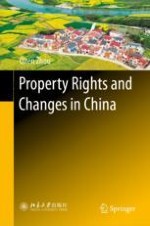2020 | OriginalPaper | Buchkapitel
13. System Cost and China’s Economy
verfasst von : Qiren Zhou
Erschienen in: Property Rights and Changes in China
Verlag: Springer Singapore
Aktivieren Sie unsere intelligente Suche, um passende Fachinhalte oder Patente zu finden.
Wählen Sie Textabschnitte aus um mit Künstlicher Intelligenz passenden Patente zu finden. powered by
Markieren Sie Textabschnitte, um KI-gestützt weitere passende Inhalte zu finden. powered by
